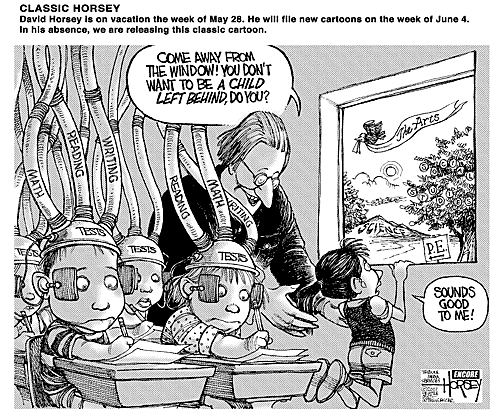But Vermont's Burlington High School made the decision to no longer name valedictorians at the end of Breen's junior year, stripping the 18-year-old of the title she would have had on June 15. Breen instead shared the top honor, graduating summa cum laude with her good friend.
"At first, it did bug me. I wasn't really happy about it," Breen says. "To enter high school with that as a goal and have it taken away from you, that's hard."
Valedictorians have become less prominent at graduation ceremonies across the USA, as competition has sent high schools searching for alternate designations.
Nat Harrington, spokesman for the Palm Beach County (Fla.) School District, says that's a positive development, because the fight for the title has gotten out of hand. "The student's mom comes in the first day of school to find out what her daughter needs to do to become valedictorian," he says.
Educators and students say pursuit of the top grade point average (GPA) has distorted the academic process: Students might transfer to schools perceived as easier; or they may drop enriching courses in music or arts to grab advanced courses that have a higher weighted GPA.
High schools in Washington, Minnesota, Maryland and Vermont are among those that have stopped naming valedictorians. Schools in Florida and Nevada are considering changes as well.
The Latin honors of summa cum laude, magna cum laude and cum laude, used primarily at colleges, have become an alternative at some high schools. Others simply honor each student who meets a set of standards.
David Cordts, associate director of student activities for the National Association of Secondary School Principals, says choosing valedictorians "has to be a local decision" based on traditions, policies and practices.
"The competition is ridiculous," says Sage Snider, 17, a senior at Severna Park High School in Maryland. "It doesn't make sense. It's completely unfair for so many." Snider ranks fourth in her class.
"I went down this year because I took orchestra," she says. A fellow student dropped it to pick up a weighted Advanced Placement (AP) course.
Minnesota's Eden Prairie High School selected 24 valedictorians this month based on students with a 4.0 GPA. Next year's top graduates will be those who complete at least six AP courses and achieve a 3.5 cumulative GPA.
Amy Mellencamp, principal of Burlington High, says none of her students have lost motivation because of the new Latin system.
"I'm not feeling that (more honorees) is dampening anything," she says. "They want to be in those top categories."













